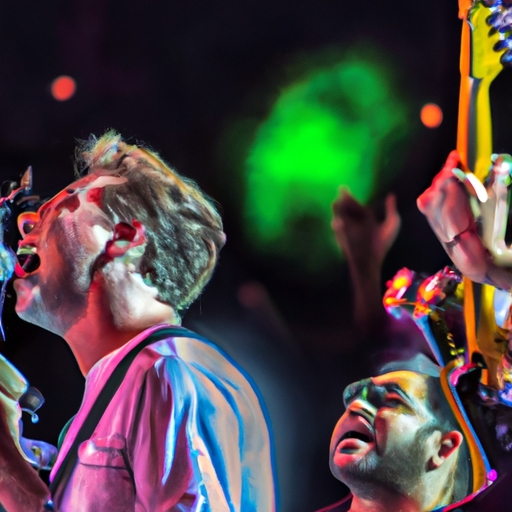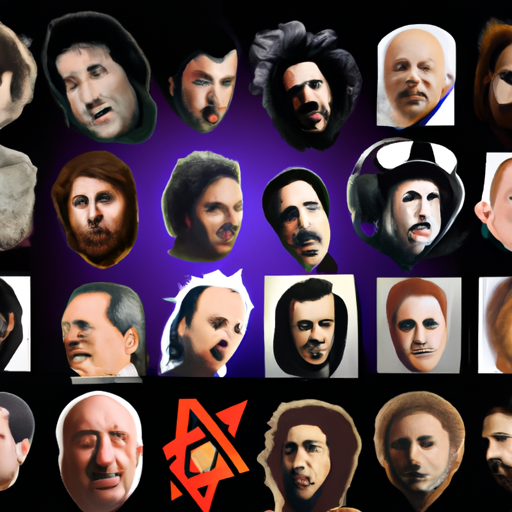This blogpost offers an in-depth exploration of the rise of Israeli pop music and its global influence. We delve into its origins, unique characteristics, and the key figures who have propelled it onto the international stage. We also examine how Israeli pop music has been received globally and its impact on the international music scene.
1. ‘Bridging East and West: The Unique Sound of Israeli Pop’
Israeli pop music has been making waves on the global stage, captivating audiences with its unique blend of Eastern and Western influences. Drawing inspiration from a diverse range of musical traditions, Israeli pop artists infuse their music with elements of traditional Middle Eastern melodies, modern Western pop beats, and everything in between. This fusion of sounds creates a distinct and innovative sound that sets Israeli pop music apart from its counterparts around the world. Israeli pop acts as a bridge between cultures, bringing together different musical styles to create a truly eclectic and dynamic listening experience.
In Israeli pop music, listeners can hear echoes of traditional Jewish music, Middle Eastern rhythms, as well as modern Western influences such as electronic beats and catchy hooks. This cultural fusion not only reflects the diverse heritage of Israel but also highlights the country’s position as a melting pot of different cultures and traditions. Israeli pop artists are not afraid to experiment with different musical styles, pushing the boundaries of what is considered mainstream and creating a sound that is uniquely their own.

1. A vibrant image of a concert in Tel Aviv, showcasing the energy and diversity of the Israeli pop music scene.
2. ‘How has the Israeli Pop Music Scene Evolved Over Time?’
The Israeli pop music scene has undergone a remarkable evolution over the years, reflecting the changing cultural landscape of the country. In its early days, Israeli pop music was heavily influenced by traditional Jewish music and Middle Eastern sounds, creating a sound that was deeply rooted in the country’s cultural heritage. Over time, as Israel became more connected to the global music scene, Israeli pop artists began to incorporate elements of Western pop music into their sound, leading to a more diverse and eclectic musical landscape. This fusion of influences helped Israeli pop music reach a wider audience both at home and abroad.
As the Israeli pop music scene continued to evolve, artists began to experiment with new genres and styles, pushing the boundaries of what was considered traditional pop music. From the rise of electronic dance music to the incorporation of hip-hop and R&B influences, Israeli pop music became more dynamic and diverse, reflecting the changing tastes of its audience. This evolution not only showcased the versatility and creativity of Israeli pop artists but also solidified Israel’s position as a vibrant hub for musical innovation.
3. ‘Influential Figures in Israeli Pop: Who are They?’
Influential Figures in Israeli Pop: Who are They?
Israeli pop music has been shaped by a number of influential figures who have left a lasting impact on the industry. One such figure is Ofra Haza, often referred to as the “Israeli Madonna,” who gained international acclaim for her unique blend of traditional Middle Eastern music with contemporary pop sounds. Haza’s powerful vocals and innovative approach to music helped pave the way for future generations of Israeli pop artists.
Another prominent figure in Israeli pop music is Idan Raichel, known for his fusion of world music with electronic elements. Raichel’s distinctive sound and thought-provoking lyrics have earned him a dedicated following both in Israel and abroad. His collaborations with artists from diverse backgrounds have helped showcase the rich cultural tapestry of Israeli music.
Ehud Banai is another influential figure in Israeli pop, known for his introspective lyrics and soulful melodies. Banai’s music often explores themes of identity, spirituality, and social justice, resonating with audiences across generations. His poetic approach to songwriting has cemented his status as a beloved figure in the Israeli music scene.

3. A collage of portraits featuring influential figures in Israeli pop music.
4. ‘Global Reception and Impact: Is Israeli Pop Music Reshaping the World’s Soundtrack?’
Israeli pop music has been gaining recognition on the global stage, with artists like Netta Barzilai winning the Eurovision Song Contest in 2018 with her hit song “Toy.” This victory not only brought Israeli pop music to a wider audience but also showcased the country’s vibrant music scene and creativity. The catchy and empowering nature of Israeli pop has resonated with listeners worldwide, leading to increased interest and appreciation for the genre.
Israeli pop music’s fusion of diverse influences, from traditional Middle Eastern sounds to modern electronic beats, has contributed to its appeal on an international level. Artists like Static & Ben El Tavori have collaborated with renowned musicians such as Pitbull and J Balvin, further solidifying Israeli pop’s place in the global music landscape. Their cross-cultural collaborations have helped introduce Israeli music to new markets and audiences, breaking down barriers and creating musical connections across borders.
The rise of Israeli pop music has not only showcased the country’s cultural diversity and resilience, but has also made significant strides in capturing global attention. The music resonates with audiences worldwide, thanks to its fusion of traditional and contemporary elements, as well as its ability to convey universal human experiences. As it continues to garner global acclaim and influence, Israeli pop music stands as a testament to the power of music in bridging cultural divides and creating shared experiences.
